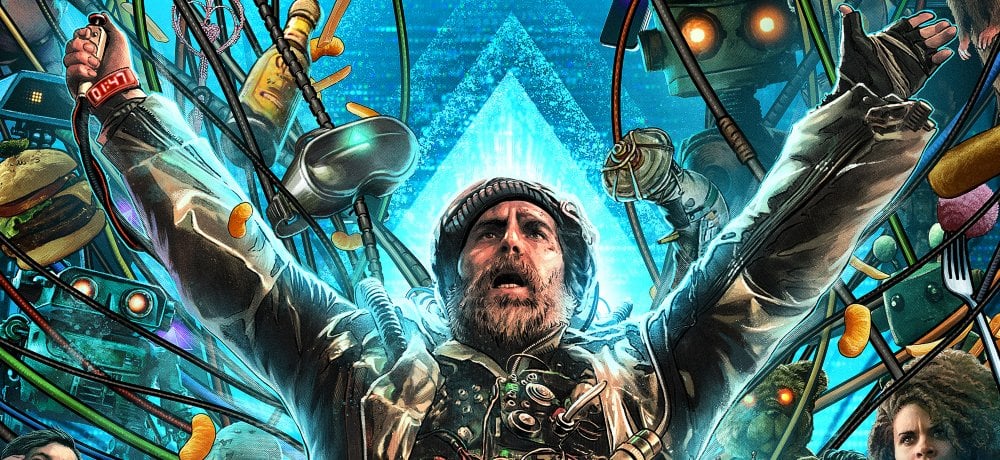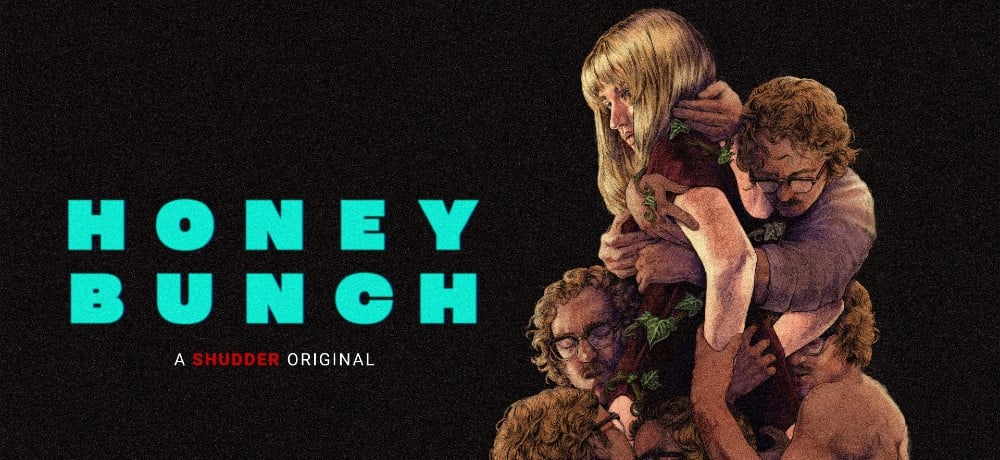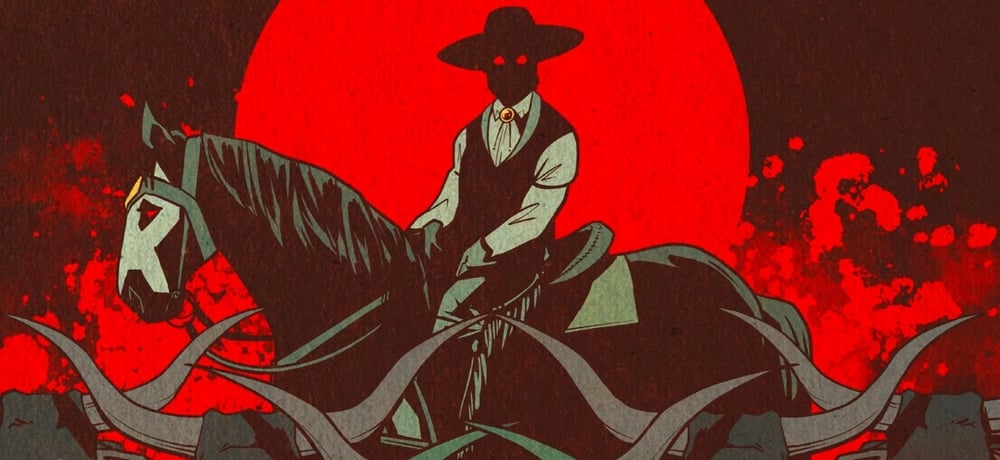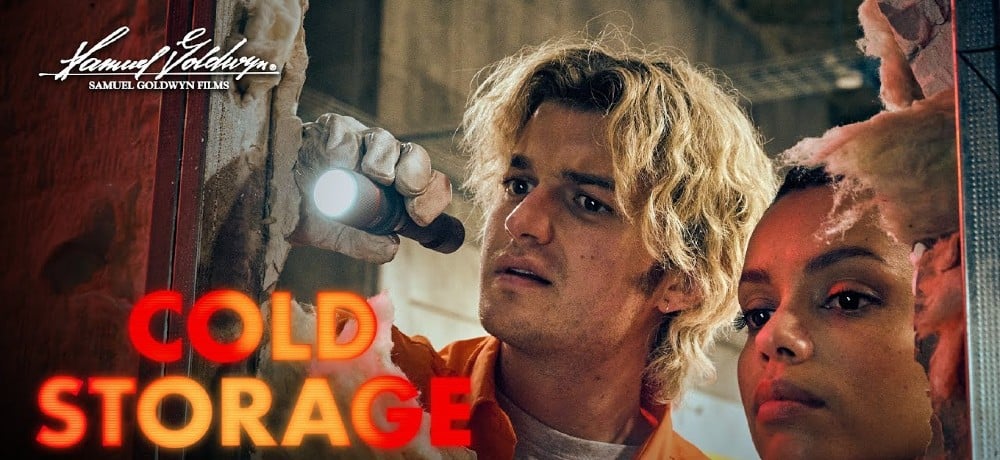





Arriving on Netflix this Friday, October 4th is Vincenzo Natali’s adaptation of In The Tall Grass, which was co-written originally by Joe Hill and Stephen King. The story is centered around a mysterious field in Kansas that seems to be nothing more than miles and miles of tall grass, but in reality wields a sinister power over anyone who has the misfortune of entering its domain.
In the Tall Grass celebrated its world premiere at the 2019 Fantastic Fest last week, and while in attendance, Daily Dead had the distinct pleasure of speaking with Natali (just a reminder, Splice rules!), and he discussed the initial appeal of taking on this story, the challenges of adapting the novella for a feature film, getting lost in the grass, and more.
I'm a huge sucker for Stephen King adaptations. So as soon as I heard you were taking on this, I got very excited. So, my first question would be how did this come together initially? Were you pursuing this story in particular? Did it come to you? How did the stars align for In The Tall Grass?
Vincenzo Natali: It came to me from a producer friend, actually. She gave me this story and Full Throttle, so she gave me two Joe Hill/Stephen King collaborations. And I like Throttle a lot, but it's not me. But this one really is me, and there aren't a lot of things that I come across that I really connect with. In fact, if anything, I was concerned that, "Should I make another movie about people trapped in a metaphysical environment?" Because I have walked that path before. But this is its own very unique environment. And there were a lot of things about it that touched me personally, too.
The novella itself isn't very long, so ultimately you have to figure out ways to not only just adapt the material for the big screen, but also flesh it out in a different way than what you have on the written page. What was that process like? How do you decide what's going to play visually and what's better left on the page? What do you add in and what do change?
Vincenzo Natali: Well, I think I knew that it could be a movie when I realized that I would bring Travis into the story, who was mentioned in the novella, but not really seen. When I thought of him coming into the field to look for Cal and Becky, it made me think of Orpheus in the Underworld and Orpheus and Eurydice, and I really thought the field just has such an archetypal mythic quality, like the Elysian fields. So, I realized it was now a feature because there was a love triangle and there was some real emotional complexity involved in the situation with this guy who goes searching for this girl who he made pregnant and disappeared.
But it was all seeded in the story, so I didn't actually invent anything in terms of locations or characters. I just sort of elaborated on them and I tried to approach it like I was Stephen King and Joe Hill writing the novel version of their story, and that was my process. I think I wrote the first draft about five years ago, and then I'd go and do something else and then come back to it. It was actually a very natural progression.
As genre fans, we're used to seeing Patrick Wilson as this face of comfort and this guy we all trust, but he really goes off the rails here, in the best possible way. Can you talk about working with him, just because I thought it was a really interesting role for him in particular, and he is terrifying in this movie.
Vincenzo Natali: I love Patrick, and have always loved him as an actor, but I particularly wanted him in this for that reason: because you trust him. One of the things that we did alter from the book was we delayed the reveal that he is what he is. In the book, you immediately know that he's a psychopath. But we tease that information until later in the story here. And so that's how it came about. But one of the things I love about Patrick in this role is that he took what was essentially a Jack Torrance from The Shining type of character and he makes him into an uber-mensch. He's great at everything that he does. First of all, he's super good looking and he's very intelligent. And further, as the movie goes on, you actually realize he's very well read. He's well educated.
He's an evil villain, but he's just so magnificent. That was, I think, a wonderful development from the book, because Ross in the book is a little bit more like a frustrated suburban husband who's stuck in a field. This Ross is so much more than that. And Patrick really played into that.
In terms of the visuals, on paper it's just people running around in a field of grass. So, what do you do with that on a visual level? Because this is almost the same thing of when you're shooting a movie in one location, where you have to find ways to keep making it interesting for viewers. The challenge here is particularly huge because you're looking at blades of grass and yet it's so ominous, even in the daylight. It's still creepy, even though the sun is around you and everything else about it should feel idyllic, and yet there's nothing idyllic about anything in this film.
Vincenzo Natali: Oh, thank you. I had a great cinematographer, Craig Wrobleski, who's just amazing. But it's that field, too. The reality is when you walk into a real field of tall grass, that's just the way it is. You feel very vulnerable. And I don't know if there's such a thing as genetic memory, but I'm sure early humans would not want to be caught dead in a field of tall grass because you would be easy pickings for any predator. You can't see two feet in front of your face and you have no reference points.
So, even when we were making the movie, people would get lost in the field all the time. We had whistles so we could call to each other. There was just something about the natural environment that conjured that feeling. But also, one of the big draws to adapt this to a movie for me was it's just so bucolic and beautiful, and there's something majestic about that field. And as frightening as it is, it's also really beautiful. It's that sweet, sour combination that I always liked with my horror.
Following up on that, because of the location, did it help you get those heightened responses from the cast then? I’m sure you didn’t just toss them into the field and let them figure things out, but there are some pretty agonizing moments for them.
Vincenzo Natali: Well, we did that a little bit [laughs]. We did torture them a little bit, in fact. I warned them when I was casting. I told them that this is going to be physically difficult because it'll be very hot, where you're going to be exposed to the elements for long stretches of time, and the grass actually can cut you. It's not like soft, cuddly grass. It's actually like little razors. So, it's a hard place to be. But in addition to that, I told them that they were going to be emotionally stripped to your core, too, so it's going to be tough, but they were all prepared for that. And it really was like they were living the experience, where they were out there every day, all day, in the heat, dealing with all the bugs and getting sliced up. And so, they were in the real place, really feeling it, and I think that has a palpable effect on performance, and it had a palpable effect on me. I love shooting on location. There's just something very magical about it, and it's really easy to get inspired when you're in that kind of space.
---------
Visit our online hub to catch up on all of our live Fantastic Fest 2019 coverage, including more reviews and interviews from the festival!